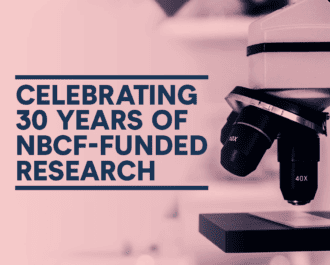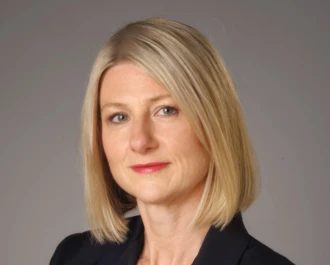 Treat
Treat
The National Breast Cancer Foundation (NBCF) today announces the investment of over $12 million to 16 research projects with a focus on hard-to-treat breast cancers to support its vision of Zero Deaths from breast cancer.
The 16 research projects include research that is looking at why young women get breast cancer, new personalised treatments for triple negative breast cancer, the effect of a range of different treatments on the immune system in metastatic sites such as bones, and new hormonal treatments to prevent metastatic breast cancer. These projects could help reduce the 3,200 deaths a year Australia currently expects as a direct result of a breast cancer diagnosis.
NBCF’s ability to fund breast cancer research relies solely on donations raised by the Australian public. This year, those donations will fund the very best breast cancer research in Australia from fundamental biological research to clinical research via an open national, competitive, and rigorous peer review process. Grants are awarded in order of merit to the finest breast cancer research across Australia in alignment with NBCF’s vision of Zero Deaths from breast cancer.
Breast cancer is the most commonly diagnosed cancer amongst women in Australia. This year alone, it is estimated that over 20,000 Australians will be diagnosed, that’s 57 Australians diagnosed each day. Sadly, it is expected that 9 Australians will die from breast cancer each and every day.
NBCF is dedicated to funding world-class research towards its vision of Zero Deaths from breast cancer.
Associate Professor Cleola Anderiesz, CEO of NBCF said, “On behalf of the National Breast Cancer Foundation I am proud to announce funding for 16 world-class research projects including support for the salaries of 88 researchers, collaborators and support staff to help them work towards NBCF’s vision of Zero Deaths from breast cancer.”
“As a community-funded organisation, NBCF’s ability to support innovative world-class breast cancer research is made possible with the support of Australians’ donations. To our supporters, thank you for your continued contributions which make a tangible impact on breast cancer research. Thanks to your support, these 16 projects could save lives through better understanding the genetic causes of breast cancer, investigating new treatments for hard-to-treat breast cancer and reducing the spread of breast cancer.”
NBCF investment in world-class research has contributed to incredible achievements in Australian breast cancer research since its inception in 1994. Since then, NBCF has invested around $200M into more than 600 world-class research projects. During this time, death rates from breast cancer in Australia have improved by 43%.
Here are four of the 16 research projects NBCF are announcing funding for today:
Professor Jeff Holst (University of New South Wales) – EViCTing Breast Cancer by Starving Tumour Cells – Triple Negative Breast Cancer (TNBC) cells use glutamine as an energy source to meet the high metabolic demands to sustain rapid tumour growth. Dr Omid Faridani and Prof Jeff Holst have developed a pre-clinical model to test whether drugs can target breast cancer cell addiction to glutamine, ultimately starving the cancer cells to death.
Associate Professor Belinda Parker (Peter MacCallum Cancer Centre) – Bone metastases are painful lesions occurring in up to 70% of patients with metastatic estrogen receptor positive (ER+) breast cancers. Associate Professor Belinda Parker will examine the effects of different therapies on the immune system in the bone environment and their potential to enhance anti-tumour immunity in the bone.
Associate Professor Peter Simpson (The University of Queensland) –Understanding the causes of breast cancer in young women – Breast cancer is the most commonly diagnosed cancer in young women under 40 years in Australia. A/Prof Peter Simpson will study tumour samples from patients’ who were diagnosed with breast cancer under 40 years of age to reveal the underlying genetic cause of early onset breast cancer.
Professor Wayne Tilley (The University of Adelaide) – New hormonal approach for metastatic ER+ breast cancer – Around 30% of patients with estrogen receptor positive (ER+) breast cancer develop resistance to standard of care treatments leading to metastasis, the primary cause of death. Prof Wayne Tilley will investigate whether a new hormonal therapy that activates the androgen receptor can prevent metastasis in preclinical models of ER+ breast cancer.
In the lead up to the Mother’s Day, two of the 16 grants funded are aligned with the generous donations raised by the Mother’s Day Classic Foundation (MDC). These grants include:
- Professor Kum Kum Khanna (The Council of Queensland Institute of Medical Research) – Repurposing an arthritis drug for the treatment of metastatic triple negative breast cancer.
- Dr Amy McCart Reed (The University of Queensland) – New biomarkers to predict treatment response in patients with high-risk aggressive breast cancer.
You can read more about these game-changing breast cancer research projects here.
You can support game-changing breast cancer research and help NBCF reach Zero Deaths from breast cancer today. Find out more here.
More News Articles
View all News Treat
Treat
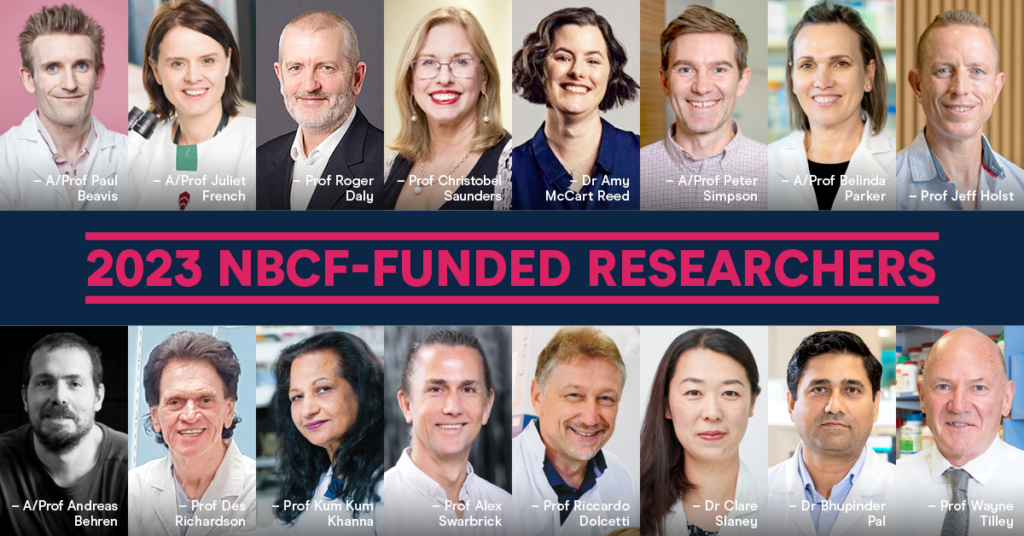
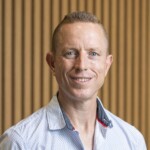 Professor Jeff Holst (University of New South Wales) – EViCTing Breast Cancer by Starving Tumour Cells – Triple Negative Breast Cancer (TNBC) cells use glutamine as an energy source to meet the high metabolic demands to sustain rapid tumour growth. Dr Omid Faridani and Prof Jeff Holst have developed a pre-clinical model to test whether drugs can target breast cancer cell addiction to glutamine, ultimately starving the cancer cells to death.
Professor Jeff Holst (University of New South Wales) – EViCTing Breast Cancer by Starving Tumour Cells – Triple Negative Breast Cancer (TNBC) cells use glutamine as an energy source to meet the high metabolic demands to sustain rapid tumour growth. Dr Omid Faridani and Prof Jeff Holst have developed a pre-clinical model to test whether drugs can target breast cancer cell addiction to glutamine, ultimately starving the cancer cells to death.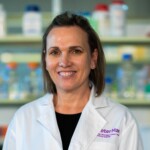 Associate Professor Belinda Parker (Peter MacCallum Cancer Centre) – Bone metastases are painful lesions occurring in up to 70% of patients with metastatic estrogen receptor positive (ER+) breast cancers. Associate Professor Belinda Parker will examine the effects of different therapies on the immune system in the bone environment and their potential to enhance anti-tumour immunity in the bone.
Associate Professor Belinda Parker (Peter MacCallum Cancer Centre) – Bone metastases are painful lesions occurring in up to 70% of patients with metastatic estrogen receptor positive (ER+) breast cancers. Associate Professor Belinda Parker will examine the effects of different therapies on the immune system in the bone environment and their potential to enhance anti-tumour immunity in the bone. Associate Professor Peter Simpson (The University of Queensland) –Understanding the causes of breast cancer in young women – Breast cancer is the most commonly diagnosed cancer in young women under 40 years in Australia. A/Prof Peter Simpson will study tumour samples from patients’ who were diagnosed with breast cancer under 40 years of age to reveal the underlying genetic cause of early onset breast cancer.
Associate Professor Peter Simpson (The University of Queensland) –Understanding the causes of breast cancer in young women – Breast cancer is the most commonly diagnosed cancer in young women under 40 years in Australia. A/Prof Peter Simpson will study tumour samples from patients’ who were diagnosed with breast cancer under 40 years of age to reveal the underlying genetic cause of early onset breast cancer.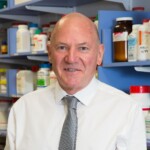 Professor Wayne Tilley (The University of Adelaide) – New hormonal approach for metastatic ER+ breast cancer – Around 30% of patients with estrogen receptor positive (ER+) breast cancer develop resistance to standard of care treatments leading to metastasis, the primary cause of death. Prof Wayne Tilley will investigate whether a new hormonal therapy that activates the androgen receptor can prevent metastasis in preclinical models of ER+ breast cancer.
Professor Wayne Tilley (The University of Adelaide) – New hormonal approach for metastatic ER+ breast cancer – Around 30% of patients with estrogen receptor positive (ER+) breast cancer develop resistance to standard of care treatments leading to metastasis, the primary cause of death. Prof Wayne Tilley will investigate whether a new hormonal therapy that activates the androgen receptor can prevent metastasis in preclinical models of ER+ breast cancer.